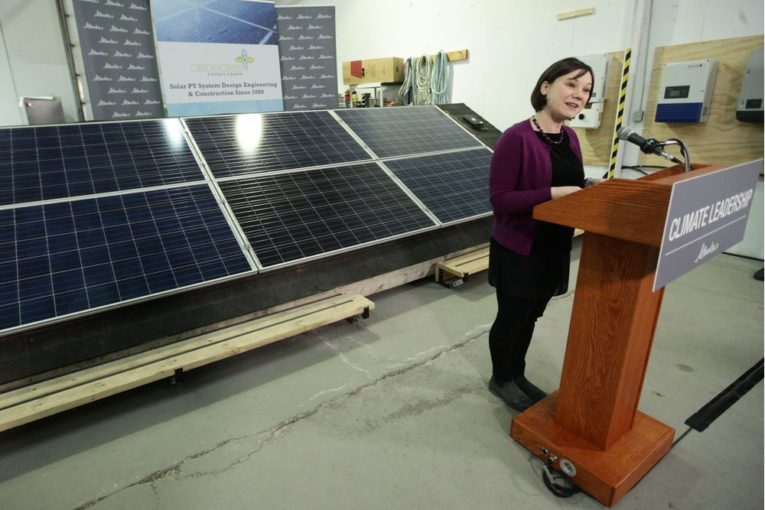
Incoming premier Jason Kenney’s pledge to kill Energy Efficiency Alberta could result in job losses, warn companies that have capitalized on growing consumer interest in retrofits and renewables.
The provincial agency — established in 2017 by Rachel Notley’s NDP government — uses revenue from Alberta’s carbon tax to fund rebates and programs designed to help homeowners, municipalities and businesses improve their energy efficiency and reduce their greenhouse gas emissions.
It came under considerable fire from the conservative Opposition, who said the government was trying to buy Albertans with their own money through the offer of free LED light bulbs and low-flow shower heads. Kenney, who has said his first order of business in office will be repealing the carbon tax, has made it clear he also plans to do away with Energy Efficiency Alberta.
But while the agency — which has an annual budget of $132 million — has its share of critics, the numbers suggest Albertans are making use of its programs. Energy Efficiency Alberta CEO Monica Curtis said in March that every single postal code area in the province has taken advantage of what’s available in one way or another, whether it’s instant in-store savings, residential and community solar, a business energy savings program or a host of education and training grants. In its first 18 months of operations, she said, the agency invested $170 million into energy efficiency and renewable energy.
The programs have also led to a boom in demand for solar installers, engineers, electrical and HVAC contractors, and others who specialize in energy efficiency retrofits or micro-generation projects, said Geoff Domenico, president of Calgary-based solar installation company KPC Energy Inc.
Related
“I don’t think people realize how much job creation is associated with Energy Efficiency Alberta,” said Domenico, adding his company has been rapidly expanding over the past two years and now has 20 employees. “We’re busy hiring right now in the solar industry, and I assume you could probably extend that across all the other types of activities that Energy Efficiency Alberta enables.”
Bryce Allred, owner of Lethbridge-based Solar Optix Energy Inc. — which has done solar installations for residential, municipal, agricultural and industrial clients — said his business has more than doubled in size since the creation of Energy Efficiency Alberta. He said half of his clients mention the agency’s incentive programs as a significant factor in their decision to pursue solar, adding he is very worried about what could happen if they are eliminated.
“Us personally, we’ll probably be good for the summer but after that it would not be out of the realm of possibility for us to have to shut our doors,” Allred said.
While small-scale renewable energy projects will be most affected by the elimination of Energy Efficiency Alberta, utility-scale renewables providers are also keeping a close eye on the premier-designate’s plans. To meet its goal of achieving 30 per cent renewable electricity by 2030, the NDP government introduced a renewable energy program through which there have been three competitive auctions to date — securing 1,363 MW of wind power capacity at record low prices. The projects are expected to begin coming on line later this year.
Kenney said during the campaign he would not cancel “good-faith contracts,” but he also said a UCP government will not continue to subsidize renewables. (The NDP’s program included a guarantee that if electricity prices fall below the company’s contracted price, the government would backstop the difference.)
The NDP’s program made Alberta the most attractive jurisdiction in the country for wind energy investment, said Evan Wilson, regional director for the Canadian Wind Energy Association. But he said he believes even without it, companies will continue to invest in wind.
“(The NDP program) demonstrated without question that wind generation is low-cost and that wind facilities can be built at a lower cost now than any other type of electricity-generating facility in the province,” Wilson said. “We look forward to providing feedback on how to create a market-based structure that will continue to allow our members to be competitive here in Alberta.”
Twitter.com/AmandaMsteph
You can read more of the news on source
